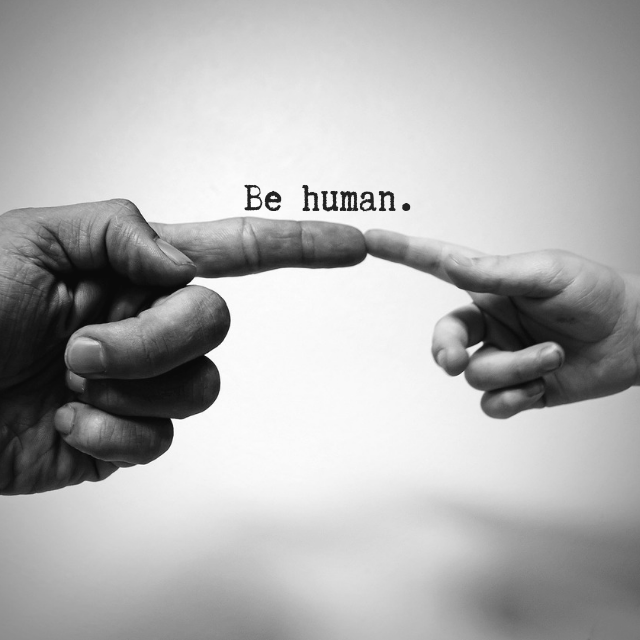As a regular person who also maintains a regular 9 to 5 job, I increasingly grow restless whenever I hear of ‘Industry 4.0’. The term itself is not new and has been going around for several years, however, my company has taken a new initiative focusing around industry 4.0.
If you are not familiar with the term, industry 4.0 is the fourth revolution occurred in the manufacturing industry. Thanks to digital technology, the fourth revolution enhanced the adoption of computers with autonomous systems, machine learning, and big data.
Yes, they’re talking about machine optimization, robots, 3D printing, Internet of Things, and cloud computing. Sounds techy, no? Although it started in the manufacturing industry, Industry 4.0 already disrupts other sectors as well.
Now, what makes me tick is we seem to concentrate on the big computerized term and not to the human factor. Where is the human side? What role should we give to ourselves?
Rather than focusing on the interaction between human and machine, shouldn’t we focus on communicating between humans as well?
Nowadays, companies give attention to the human factor only for the sake of upgrading their skills. Yes, the “Skills 4.0”, viewed as a necessity for every employee to handle all the tech. That’s why you may find “Coding Camp”, or “Big Data Analytics Class” or “Handling Cybersecurity Workshop”.
Not only for the college students and employees, but we also think it is best for our children to start learning about coding and algorithm as early as possible. How young these kids enrolled in a coding camp? The most popular is for children from 5 years old, while few of these coding academies also thinking to accept toddlers from the age of 2!
We push our children to write codes, while we complain they are not talking to each other at dinner. We expect them to interact better with machines while also being angry at them whenever they are focusing on their gadgets and not talking to us. And then we judge them of being addicted – to the gadget, or to social media, or to technology.
The importance to sympathize, even more, empathize seems to decrease in the value of interpersonal communication. It diminished in a form of self-absorbed need to convey a message so willingly, it forgets the essence of human being’s connection.
The social media influencers are on a race to create a benevolent way of interactions, but it would soon crash as the number of individuals making a living with it are increasingly boring. Yet something is still missing. Nothing can replace true connections of a simple phone call and get togethering at a local coffee shop.
Missing The Analog Times
The old ways seem to be peering and waiting for its comeback. It was the annoyance of wanting to documented becomes a necessity to some individuals, that eventful moments such as traveling, even a visit to the zoo with your kids must be interrupt or controlled with phone cameras, and captions ideas, instead of bare mindfulness.
What happened to just having it in our memory? What happened to the classic non-digitized world that shaped our childhood? Should we deny the massive breakthrough of technology and blame it for the lack of virtue in the virtual world?
Setting the record straight, there is a fine line in raising better human resources. Between familiarizing good interpersonal skills organically, and doing communication with devices. That line is, knowing the boundaries of social media usage. Which not everyone, even as an adult can get away with the so-called addictive-technology.
Here’s the twist; the world doesn’t just need programmers. We also need historians, mathematicians, entertainers, football players, and so on. We gain beauty and strength in diversity, and this is what we should teach our children.
In a society increasingly governed by the rhythm of keystrokes and screen glows, the call to “be human” resonates more deeply than ever. As we navigate through the digital age, it’s imperative to remember that technology, while transformative, should enhance rather than replace human interaction.
Reclaiming Human Connection: Amidst the intense notifications and digital engagements, making deliberate efforts to foster genuine human relations becomes crucial. Encouraging activities that promote empathy, understanding, and face-to-face interactions can help restore the balance. Initiatives like community gatherings, storytelling nights, and unplugged weekends can remind us of the joy found in real-world connections. These activities foster a sense of community and shared humanity, something that algorithms and data analytics cannot replicate.
Educational Diversity: While equipping the next generation with digital skills is undeniably important, we must also emphasise the value of a broad education that includes the arts, humanities, and physical activities. Encouraging children to explore a wide range of interests helps them develop into well-rounded individuals with the ability to think critically. Schools and parents should champion curricula that are as diverse as the society we hope to build, celebrating the contributions of all disciplines.
Mindfulness in the Digital Era: As we ponder the implications of industry 4.0, integrating mindfulness practices into our daily lives and educational systems can provide a counterbalance to the overwhelming digital noises. Mindfulness teaches presence, awareness, and the art of living in the moment – qualities that are increasingly scarce in the world where attention is fragmented by digital demands.
In the end, the essence of being human lies not in our ability to interact with algorithm, but in our capacity for compassion, creativity, and connection. As we stand at the crossroads of industry 4.0, let’s weave technology into the fabric of society that amplifies human traits. Let’s build a future where technology serves humanity, not the other way around.
This is a joint article between writers of hapticroom.com
Author: Mia
A writer and researcher who also a tech-addict and internet-junkie. Loves quirky stuff.
The Haptic Room is supported by our readers. Our site may contain links to affiliate websites, and if you make a purchase through these links, we receive a commission to support our site.


One Reply to “Be human.”
Comments are closed.